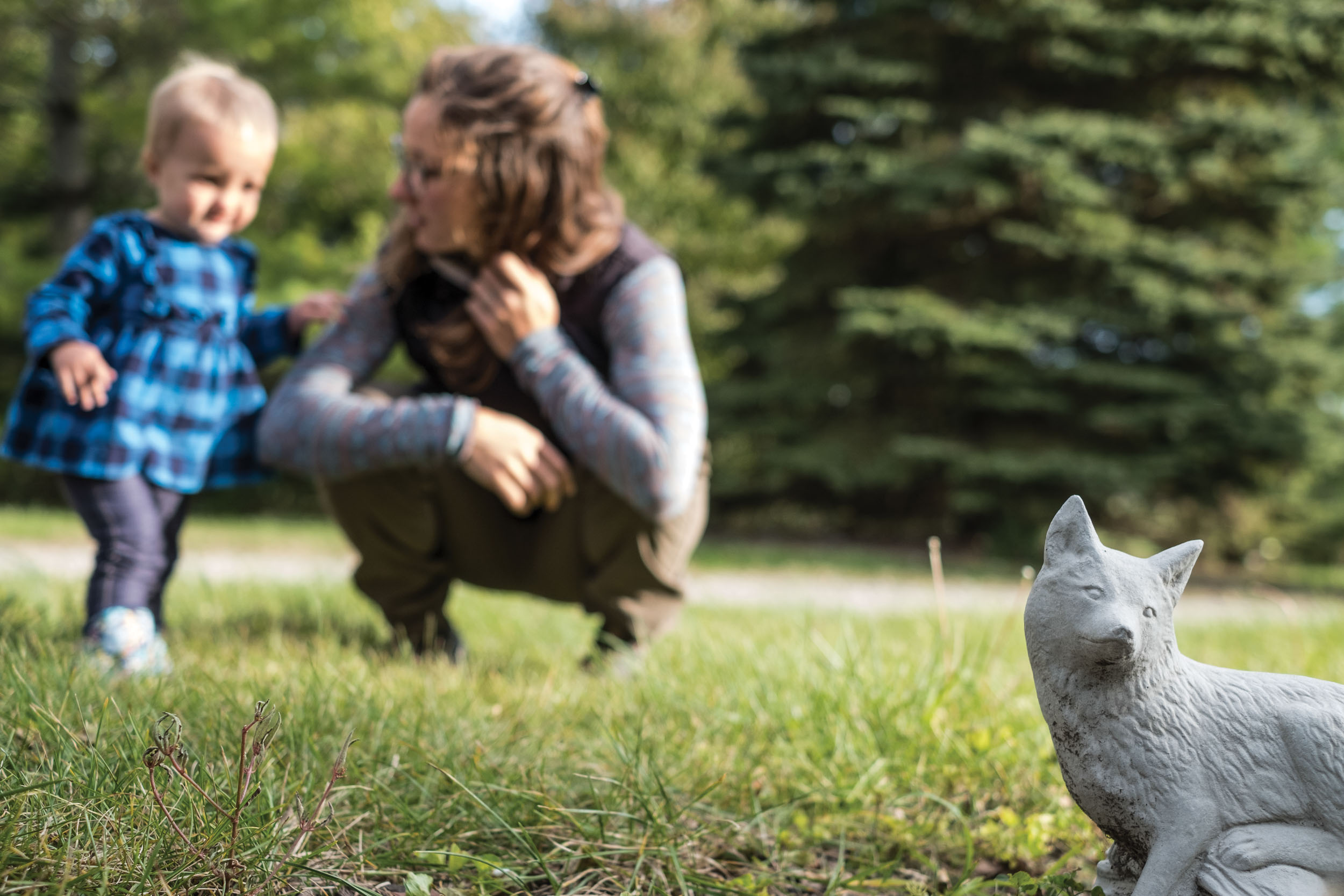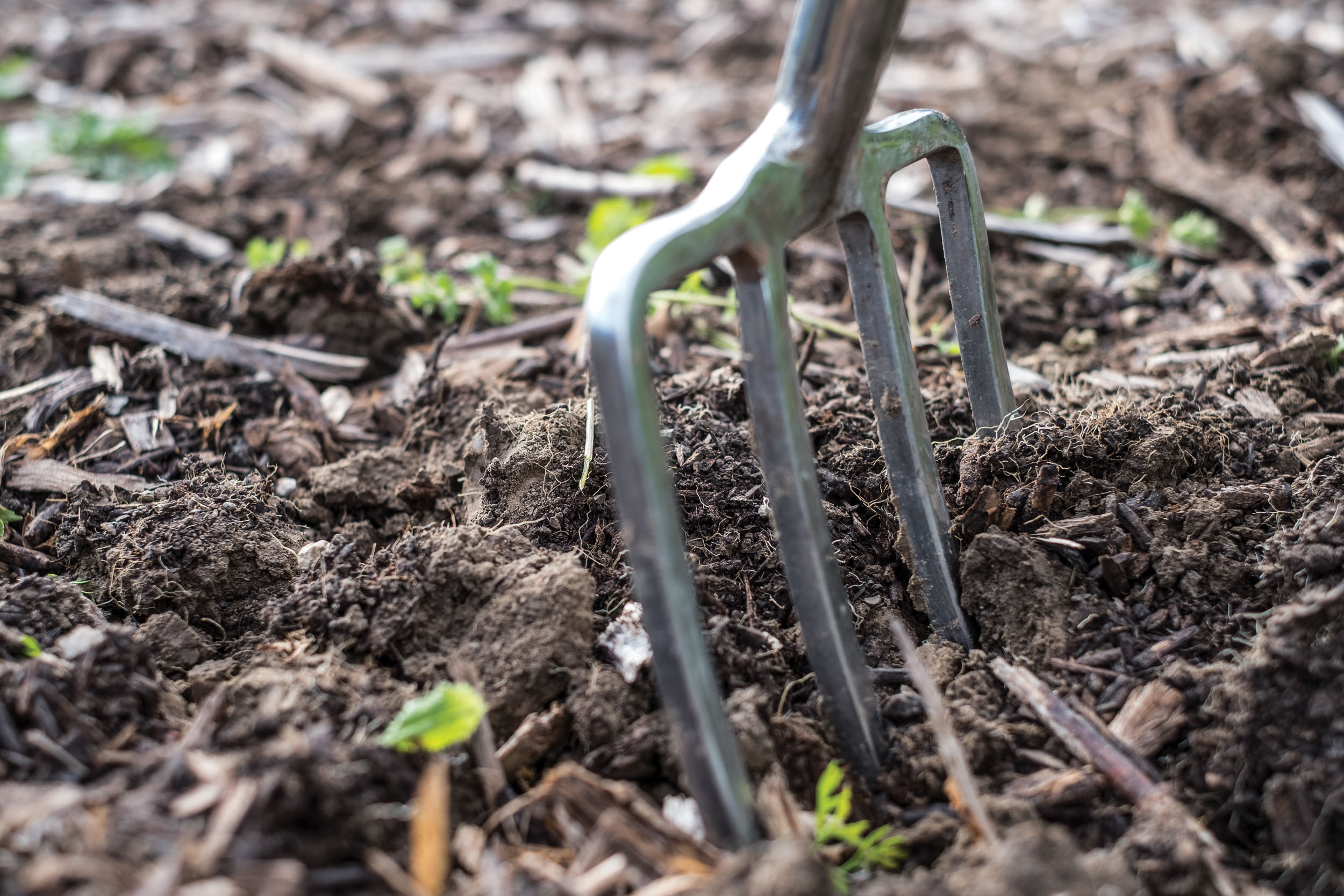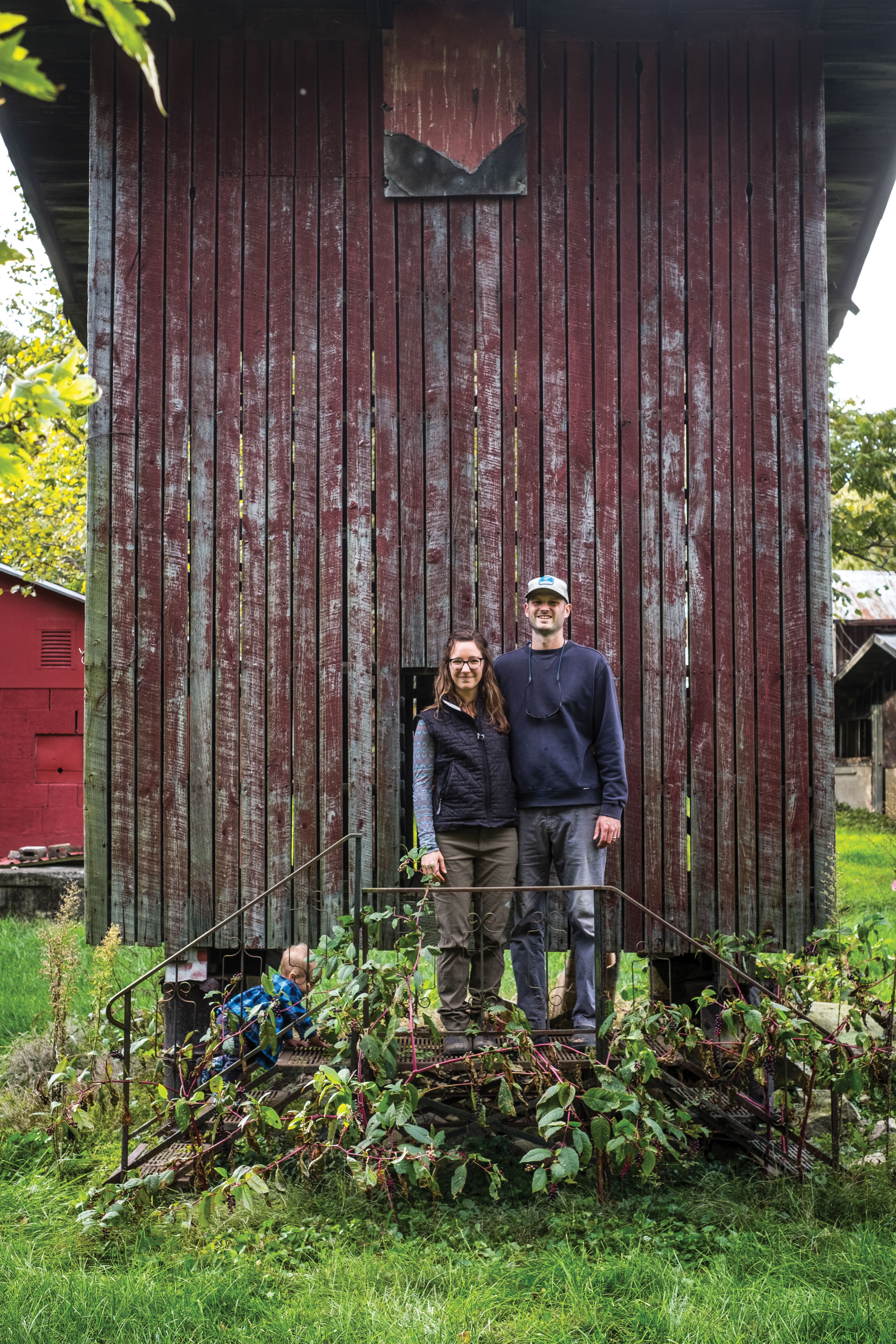The Land Reveals Itself to Us

portrait by Michael Wilson
Our little foxhole in Brookville Ohio surfaced in the land listings in early March, the time of the year when we are typically tending to transplants and preparing equipment for spring seeding. Google Earth showed us a sprawling 27 acres in the shape of a T with a little, old farmhouse tucked into a tuft of tall trees in the very heart of the property.
As we drove down the 500-foot driveway for the first time, late winter still had a hold on the soil. The frozen ground concealed mysteries that will take years of observation to understand and work with. How would the soil handle a heavy rainfall? How well stocked was the weed seed bank which had been kept at bay during years of chemical weed control? Which soil microbes and critters would be present?
All we could rely on was the mutual good feeling we had for the place, the local well-driller’s word, and the web soil survey of our land. After a week of mulling and taking another walk around the property, we made an acceptable offer and signed the dotted line. Spring would soon unlock a few of the land’s secrets.
The thaw arrived around our baby May’s first birthday and we were greeted by a sea of violets surrounding the homestead. Waiting on the arrival of our tractor to get the field disced for planting, I fixed my stir-craziness by capturing a bit of our first spring on the farm and made a large batch of wild violet jelly. Subsequently, other wildflowers emerged and so I traced our first season with a line of floral jellies. As May learned to crawl and then to walk, I picked the latest blooming beauties. These floral jellies have been a lovely addition to our market offering, my reaction to the land’s bounty.
The land continued to open up to us as our newly seeded pastures germinated. Amid our seeded pasture mix, giant ragweed volunteered itself readily. Commonly considered an albatross in conventional agriculture, this weed has become resistant to most herbicides. However, if regarded in a different light, giant ragweed offers a great opportunity for grazers as its seeds are 47% crude protein, a seed which is highly digestible for wildlife and livestock alike. This discovery was music to our ears, a sort of endorsement of our intention to graze sheep.
Rich and I believe that as farmers we are meant to react to what the land has to offer as each piece exists in its own ecology and set of conditions. Often, a specific idea of what you want to do may not marry well with the environment that you settle in. Once that giant ragweed showed itself, I thought: This is the beginning of a beautiful friendship.
Sam and Rich Wickham are among them. They founded Foxhole Farm in Brookville, OH, in April 2018, setting out to transform 27 conventionally cultivated acres into a sustainable farm growing vegetables, microgreens, herbs, and, eventually, sheep. They sell at Dayton-area markets in Centerville and Oakwood, and supply Dorothy Lane Market and a handful of nearby restaurants.





